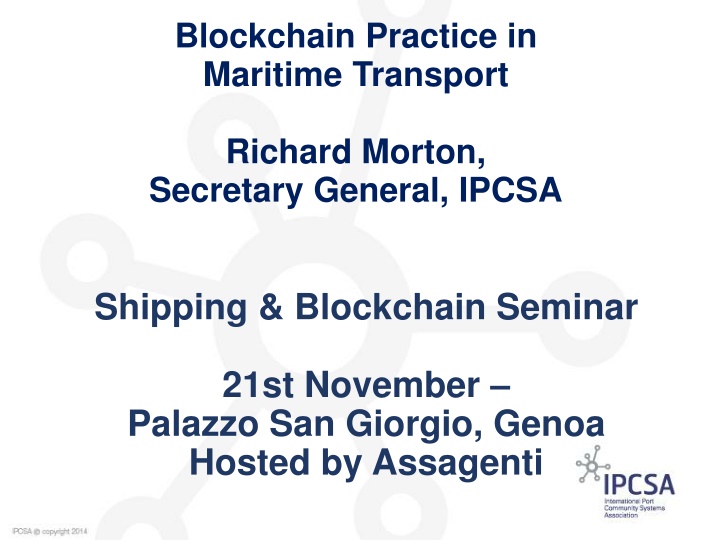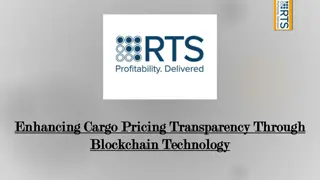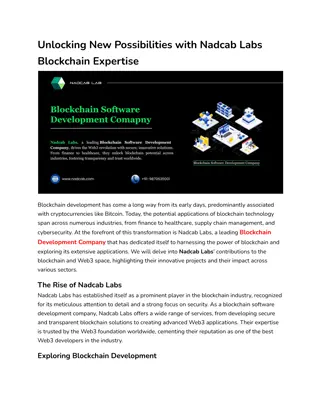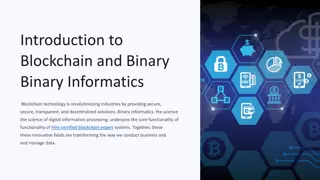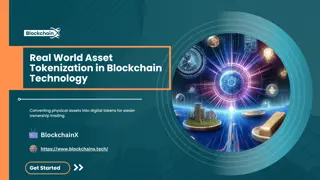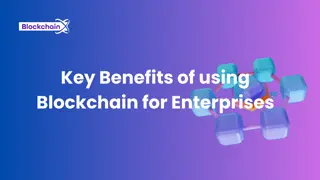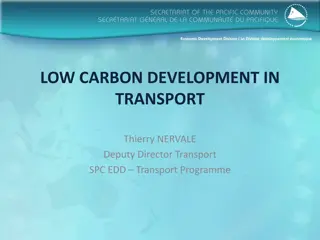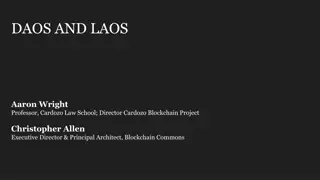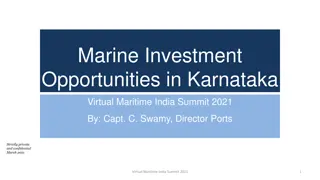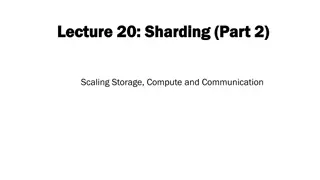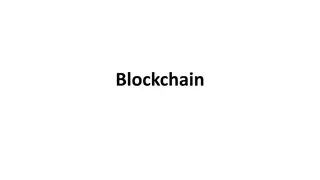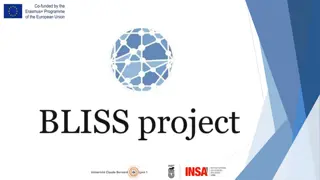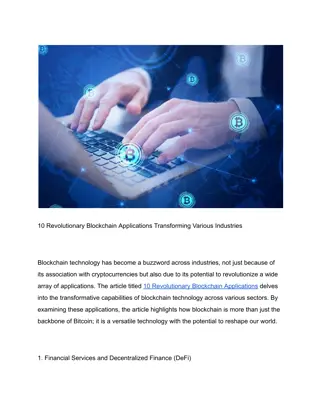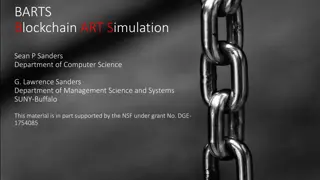Blockchain Practice in Maritime Transport
This content explores the implementation of blockchain in maritime transport, focusing on initiatives like the IPCSA Blockchain Bill of Lading and ePhyto exchange. It discusses challenges, smart contracts, and pilot cases in establishing blockchain infrastructure for efficient freight forwarding and trade processes.
Download Presentation

Please find below an Image/Link to download the presentation.
The content on the website is provided AS IS for your information and personal use only. It may not be sold, licensed, or shared on other websites without obtaining consent from the author.If you encounter any issues during the download, it is possible that the publisher has removed the file from their server.
You are allowed to download the files provided on this website for personal or commercial use, subject to the condition that they are used lawfully. All files are the property of their respective owners.
The content on the website is provided AS IS for your information and personal use only. It may not be sold, licensed, or shared on other websites without obtaining consent from the author.
E N D
Presentation Transcript
Blockchain Practice in Maritime Transport Richard Morton, Secretary General, IPCSA Shipping & Blockchain Seminar 21st November Palazzo San Giorgio, Genoa Hosted by Assagenti
Blockchain in Maritime Transport I. IPCSA Bill of Lading Proof of Concept II. Port of Antwerp ePhyto via Blockchain Proof of Concept III. Challenges of Implementation 2
IPCSA Blockchain Bill of Lading Initiative Freight Freight forwarder forwarder Importer Exporter BoL Partners Customs Customs agent agent Ship Ship Bill of Lading Confirming Issuing Bank Transport company Bank Direct interaction with the B/L Transport company Interaction with derivatives of the B/L
IPCSA Blockchain Bill of Lading Initiative BC BoL High Level Business Flow Export Country Exporter Ship agent Issue BoL BoL Forward BoL PCS1 Advising bank Users Interact through Web Application Validators Approve BoL Smart Contract Have a network node Endorse BoL Issuing bank Submit BoL PCS2 Ship agent Issue Delivery Order DO Importer Import Country 4
Phytosanitary certificate current flow A declaration used in international commerce for shipments of plants and plant products. Certificate issued by the National Plant Protection Organisation of the exporting country to be presented to the NPPO of the importing country. Source: Digitizing the phytosanitary certificate by C. Peeters (2018) 5
ePhyto exchange via Blockchain Proof of Concept was set up for a specific apple trade between New Zealand (Port of Napier) and the Port of Antwerp PoC builds further upon Smart Contract building blocks, on top of the basic blockchain technology Executed during June - August 2018 (launched on June 14th) 6
Challenges of Implementation Technology Technology maturity - Long transaction confirmation time (Affected by parameters such as Smart contract complexity, validators number, the technology used, etc) Lack of expert developers with work experience in several projects already working Interoperability of Blockchain networks- number of co- existing solutions
Challenges of Implementation Regulations/Standards Legal recognition carriers, Insurance companies, banks and countries are required to adopt new regulations. Data ownership, personal privacy, general data protection regulation. Missing open standards - Data Definitions should comply with currently used international standards (maritime industry is UN/EDIFACT and the Core Component Library of UN/CEFACT). Multiple players with different technology adoption.
Challenges of Implementation Other obstacles Need to change business processes Creation of EcoSystem on both sides of the ocean Using blockchain only when needed
Opportunities of Implementation increases transparency , availability and reliability for all participants. (Enables traceability and preventing manipulation through the public auditability of the system, Sharing an updated information (container loading, verifies a vessel has actually departed) More efficient transfer of digital assets (Blockchain digital transfer of assets could provide the benefits of quick transfer, and security to both parties) Increased security
Opportunities of Implementation Automation of contractual obligations through Smart Contracts (The exchange of goods against payment process is handled through different financial and physical flows. These two flows can be synchronized if both assets exist in a digital form. Swapping of assets can happen through smart contracts) Time and cost reductions Using blockchain only when needed
Richard Morton, IPCSA, Secretary General E: richard.morton@ipcsa.international Associate Members
